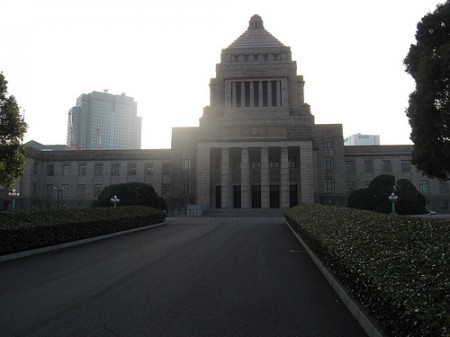
For The Economist, as for most other commentators, the dice have been cast. Four years after it won a landslide victory under the reformist banner held by Koizumi Jun’ichiro, the Liberal Democratic Party (LDP) is expected to lose the lower house elections set for 30 August. The predicted winner will be the Democratic Party of Japan (DPJ) (don’t be misled by the party names, they don’t mean much).
However, government change has been predicted before, or as The Economist writes: “The 54-year-old LDP’s obituary has been written many times, and the corpse has always revived.” Among those obituarists is also The Economist, who like me, have been wrong in the past. But this time, the evidence seems defeating. Recent opinion polls suggest that 46 percent of the respondents would vote for the DPJ compared to 19 percent for the LDP. A week ago, the DPJ won the elections to the Tokyo metropolitan assembly and pushed aside the LDP, which had been the biggest party there for 40 years.
Nevertheless, I remain skeptical about the prospect of government change. Let me give you four reasons for this.
1. Even though the local elections have been interpreted as a test run for the upcoming general elections, the results in Tokyo should not be projected directly to the national level. Local assemblies don’t have much power over policy in centralized Japan, which makes it easy for voters to cast a protest vote. Moreover, the social and economic situation of Tokyoites is different from that of Japanese citizens outside the metropolis.
2. The complicated electoral system, which includes proportional representation as well as single and multiple seat districts, make general predictions for lower house elections difficult.
3. The LDP (and also the DPJ for that matter) is a party not so much designed around a certain ideology. Rather, LDP members hold together for the single purpose of staying in power. They have managed to do so for more than 50 years and we should not underestimate the power of the incumbent.
4. Finally there is the electorate, which makes me skeptical about government change. The Economist, somewhat against their own argument, points out that Japanese citizens are skeptical or even anxious about the notion that the inexperienced DPJ may govern their country. This for me is enough to consider the possibility that in the end many voters prefer the status quo, or, as the column Banyan would say, the past, as bad as this may be.
The outcome for the 30 August elections is open. Chances are good that this openness on the one hand and the prospect for political change on the other will pull Japanese citizens to the polls in great numbers.

